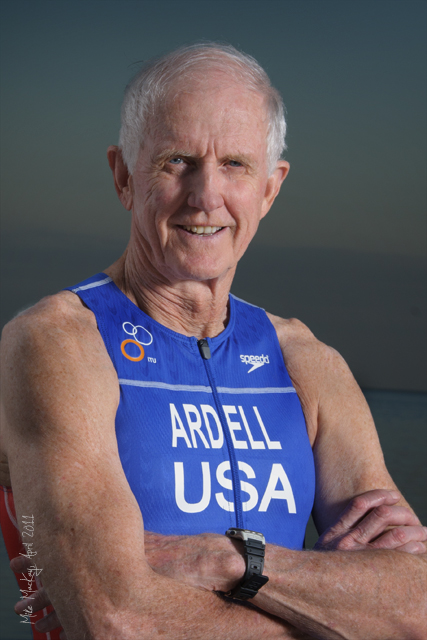Today’s article is from wellness expert Donald B. Ardell who wrote the landmark High Level Wellness: An Alternative to Doctors, Drugs, and Disease and a dozen others since, plus 673 editions of his insightful Ardell Wellness Report newsletter. He has won numerous national and world championships in triathlon and duathlon competitions and has been given lifetime achievement awards by the President’s Council on Physical Fitness and Sports, the German Wellness Association and just this year, the National Wellness Institute.
 The term “wellness” has many definitions, is applied differently in varied settings, and remains unfamiliar to most people. First popularized by Halbert L. Dunn, M.D. some fifty years ago, this word has been adopted and advanced by many individuals and organizations. In the latter category, the most prominent institution has been the National Wellness Institute (NWI), an educational non-profit based in Stevens Point, WI. The NWI has, among many activities, sponsored weeklong annual conferences for over 30 years. These gatherings have spread interest in wellness programs, but have not done much to develop, solidify or advance wellness concepts and principles associated with the term. That important function has been neglected.
The term “wellness” has many definitions, is applied differently in varied settings, and remains unfamiliar to most people. First popularized by Halbert L. Dunn, M.D. some fifty years ago, this word has been adopted and advanced by many individuals and organizations. In the latter category, the most prominent institution has been the National Wellness Institute (NWI), an educational non-profit based in Stevens Point, WI. The NWI has, among many activities, sponsored weeklong annual conferences for over 30 years. These gatherings have spread interest in wellness programs, but have not done much to develop, solidify or advance wellness concepts and principles associated with the term. That important function has been neglected.
The word wellness has also been promoted in books, newsletters, social media, worksite educational initiatives, videos and many other ways. A diverse cast of wellness advocates, including physicians, nurses, health practitioners, fitness trainers, coaches and other individuals and institutions have contributed to a growing but still modest public awareness of the term. Unfortunately, so too have advertisers of products and dubious promoters of healing remedies, but these efforts have been exploitations of the word.
Wellness has been used to help sell dog food, quack remedies and no end of foolishness along these lines. The commercial cast of wellness distortion artists has not added value, only confusion, to public understanding of the term’s meaning. To date, there has been little standardization; wellness means what anyone says it means—at least to that person.
There is no regulatory organization that monitors or guides how wellness is defined, applied, understood or promoted. If a TV evangelist wants to call his program “The Wellness Hour of Power,” nothing stands in the way, save common sense. If a Republican presidential hopeful wants to anoint his campaign for eliminating social programs, lowering taxes for billionaires (i.e., “job creators”) and a transition from a secular Republic to a Christian theocracy as a “national wellness agenda,” he or she is free to do so. Only a few wellness experts will realize that such attempts are a far cry from the wellness that Dunn and other early promoters of wellness meant by the term.
So you might wonder what to conclude about the 40-year wellness movement, as we so often refer to the spread of wellness programming in the past few decades. In a free country where “buyer beware” is the watchword for wise consumers, two observations seem clear: 1) It is up to each of us to decide what the word means at it’s best; and 2) We should, if involved in wellness promotion, promote what we believe is the best use of the term.
In this spirit, to paraphrase Richard Nixon, let me be perfectly clear: In my opinion, wellness is a philosophy, mindset or a lifestyle, consciously chosen, to pursue and realize optimal health and life satisfaction.
I do not intend this sentence as a definition, just a brief and partial explanation. I think the word wellness, as a stand-alone term, has lost its value. It needs a modifier. For years, I have used two words for expressing my ideas about “a philosophy, mindset or a lifestyle, consciously chosen to pursue and realize optimal health and life satisfaction.” Those words are REAL wellness.
REAL stands for Reason, Exuberance, Athleticism and Liberty:
Reason addresses the importance of critical thinking skills, a respect for science and evidence-based principles.
Exuberance deals with a positive orientation marked by optimism, fun and enjoyment of life.
Athleticism encompasses a high regard for and practice of physical fitness supported by sound nutrition.
Liberty is a commitment to protection of and advocacy for personal freedoms, secular democracy and principles expressed in the U.N. Declaration of Human Rights.
These, I believe, are the most important and possibly most overlooked dimensions needed for seekers of a good and healthy life in order to secure the highest possible quality of existence in modern times.
—
References and recommended reading:
Ardell, D. B. (2010). REAL wellness: It’s what’s new in wellness today. CreateSpace.

Comments are closed.